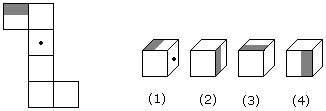Discussion
Home ‣ Verbal Reasoning ‣ Classification See What Others Are Saying!
- Question
- NA
Options- A. C9F
- B. H20L
- C. N31Q
- D. E29Y
- Correct Answer
- E29Y
ExplanationIn all other groups of words, numeric component in between the first and second letters is the sum of positions of first and last letters in the alphabet.
- 1. NA
Options- A. Daughter
- B. Mother
- C. Sister
- D. Brother Discuss
- 2. NA
Options- A. Building
- B. Toy
- C. Vehicle
- D. Mountain Discuss
- 3. Find the odd one out:
Options- A. January
- B. February
- C. March
- D. July Discuss
- 4. Aryabhatta : Mathematician : : Varahamihira :?
Options- A. Physician
- B. Astronomer
- C. Scientist
- D. Architect Discuss
- 5. a. Stem
b. Flower
c. Root
d. Leaves
e. Fruit
Options- A. c, a, d, b, e
- B. c, a, e, b, d
- C. d, c, a, e, b
- D. e, b, a, d, c Discuss
- 6. 2, 5, 9,?, 20, 27
Options- A. 14
- B. 16
- C. 18
- D. 24 Discuss
- 7. Statements:
R # T, T © M, M @ D
Conclusions:
I. D S T II. R # M
Options- A. if only conclusion I is true
- B. if only conclusion II is true
- C. if either conclusion I or conclusion II is true
- D. if neither conclusion I nor conclusion II is true Discuss
- 8. Statement:
Should children be prevented completely form using the Internet?
Arguments :
I. No. Internet is a medium of education where children get education with entertainment.
II. Yes. There are some sites available on Internet which show porno film or programmes etc, which affect the child's mind to a great extent; recent surveys have revealed most of the users of these sites are children.
Options- A. if only argument I is strong
- B. if only argument II is strong
- C. if either I or II is strong
- D. if neither I nor II is strong; and Discuss
- 9. Which one of the given responses would be a meaningful order of the following?
1. Epilogue
2. Chapter
3. Index
4. Prologue
5. Cover
Options- A. 3, 4, 2, 1, 5
- B. 5, 3, 4, 2, 1
- C. 1, 5, 2, 4, 3
- D. 1, 3, 4, 2, 5 Discuss
- 10. The figure given on the left hand side in each of the following questions is folded to form a box. Choose from the alternatives (1), (2), (3) and (4) the boxes that is similar to the box formed.

Options- A. 1 and 2 only
- B. 2 and 3 only
- C. 1, 2, 3 and 4
- D. 2 and 4 only Discuss
More questions
Correct Answer: Brother
Explanation:
All others are females.
Correct Answer: Mountain
Explanation:
All others are man made.
Correct Answer: February
Explanation:
February has of 28 or 29 days, reset all have of 31 days.
Correct Answer: Physician
Explanation:
'Aryabhatta' was the famous 'Mathematician' of the ancient period in the same way 'Varahamihira' was a famous 'Physician' of ancient period.
Correct Answer: c, a, d, b, e
Explanation:
Meaningful order of words in ascending order :
C. Root ? A. Stem ? D. Leaves ? B. Flower ? E. Fruit
Correct Answer: 14
Explanation:
So, missing term = 9 + 5 = 14.
Correct Answer:
Explanation:
R ? T ...(i) T = M ...(ii) M > D ...(iii)
Combining these we get R ? T = M > D.
Hence D > T and I follows.
Also R J? T and II follows.
Correct Answer: if only argument I is strong
Explanation:
I is strong because a good medium of education thought entertainment must not be banned. II is a weak argument because just because of a few sites it would be not wise to ban children completely form using the Internet.
Correct Answer: 5, 3, 4, 2, 1
Explanation:
Meaningful order of words :
5. Cover ? 3- Index ? 4- Prologue ? 2- Chapter ? 1- Epilogue
Correct Answer: 1, 2, 3 and 4
Comments
There are no comments.More in Verbal Reasoning:
Programming
Copyright ©CuriousTab. All rights reserved.
